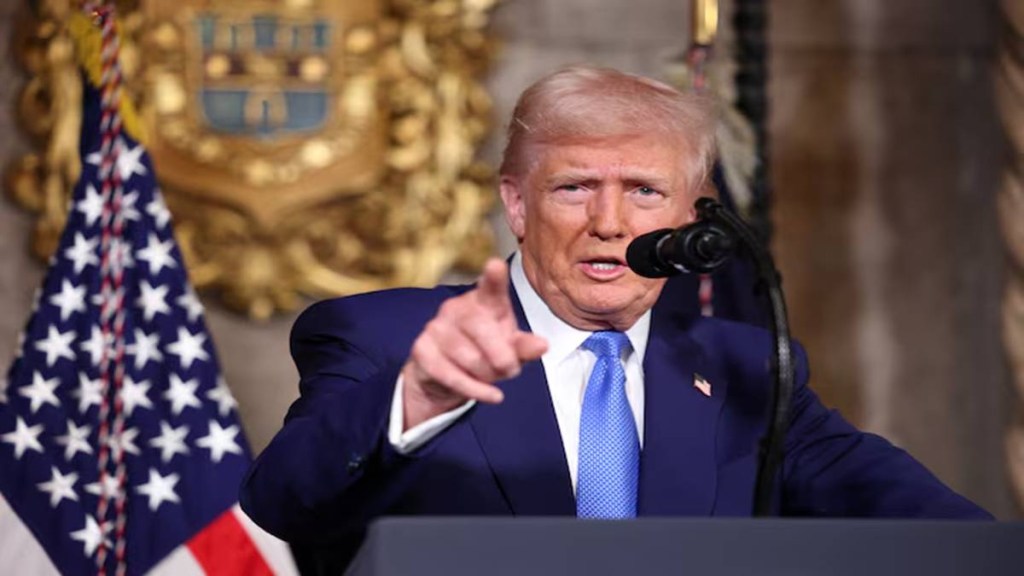US President Donald Trump likely to impose 25% tariffs on imported automobiles, semiconductor chips, and pharmaceuticals—a move that could significantly impact global trade. The initiative aims to boost domestic manufacturing and address what Trump views as unfair trade practices.
Trump suggested that auto tariffs could take effect as early as April 2, coinciding with cabinet reports on trade measures. When asked about the proposed duties, he stated, “I probably will tell you that on April 2, but it will be in the neighbourhood of 25%,” according to Bloomberg.
Trump has long argued that American automakers face disadvantages in foreign markets. He pointed out that while the U.S. imposes only a 2.5% duty on imported passenger vehicles, European tariffs on American cars stand at 10%. However, the U.S. already maintains a 25% tariff on imported pickup trucks—a policy that will continue to exclude those from Mexico and Canada, benefiting domestic manufacturers.
Trump’s tariff expansion to pharma and semiconductor chips
Trump also disclosed that a 25 % tariff will also be implemented on pharmaceuticals and semiconductor chips in the initial phase and it will surge ‘’very substantially over a year’’. He did not clarify the date when it will come into effect but hinted that companies will get time to shift their manufacturing to the US. ‘’When they come into the United States and they have their plant or factory over here there is no tariff, so we want them to give a little bit of a chance, Trump stated as reported by Bloomberg.
Since taking over office, Trump has already imposed a 10% tariff on all Chinese imports because of fentanyl trafficking concerns. Moreover, a 25% tariff on steel and aluminum imports is all set to be effective from March 12. The decision has also removed all the previous exemptions for key trading partners, including Mexico, Canada, and the European Union.
Trump’s new push announcement on auto tariffs reflects his efforts in 2018-19 when a national security investigation revealed that auto imports are the reason behind the weak US industrial base. Though he has earlier put aside the idea, the administration may now go back to pay attention to past findings. Once imposed these tariffs could hamper global supply chains and escalate trade tensions.
(With inputs from Reuters)

